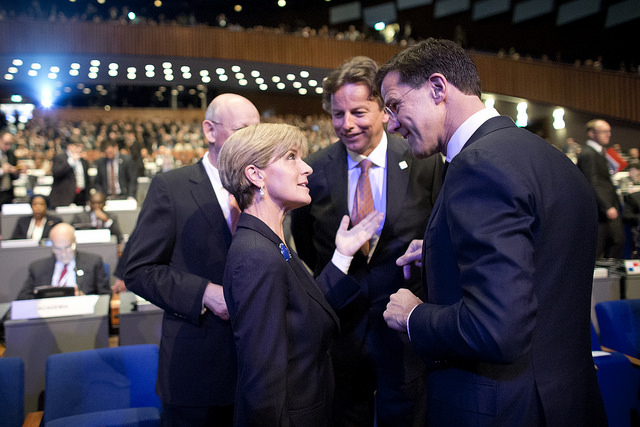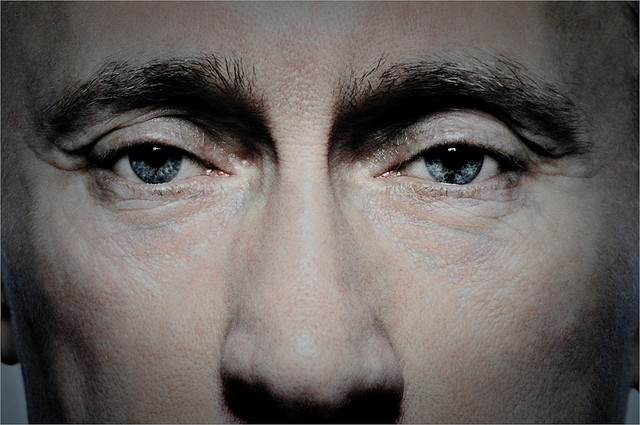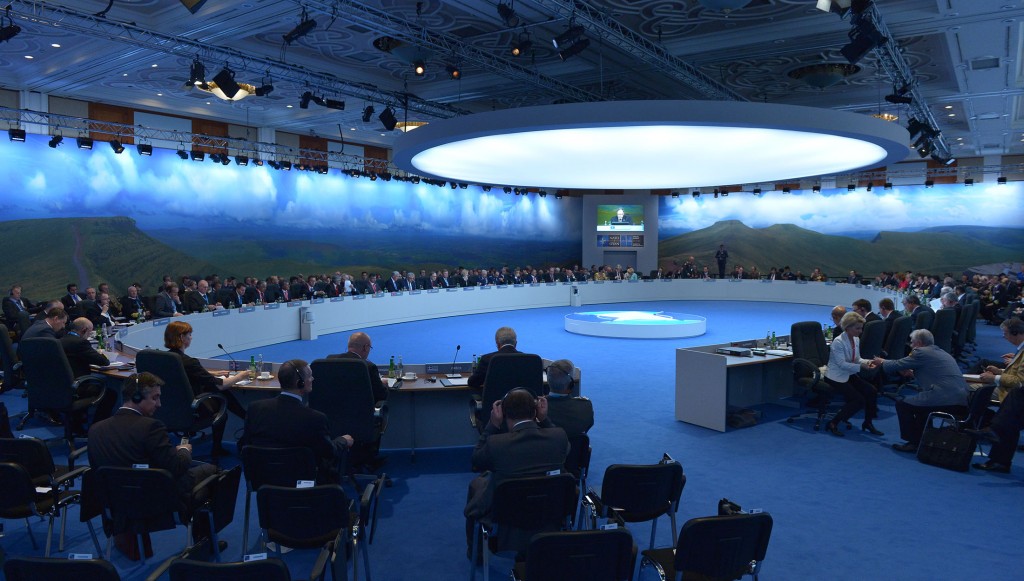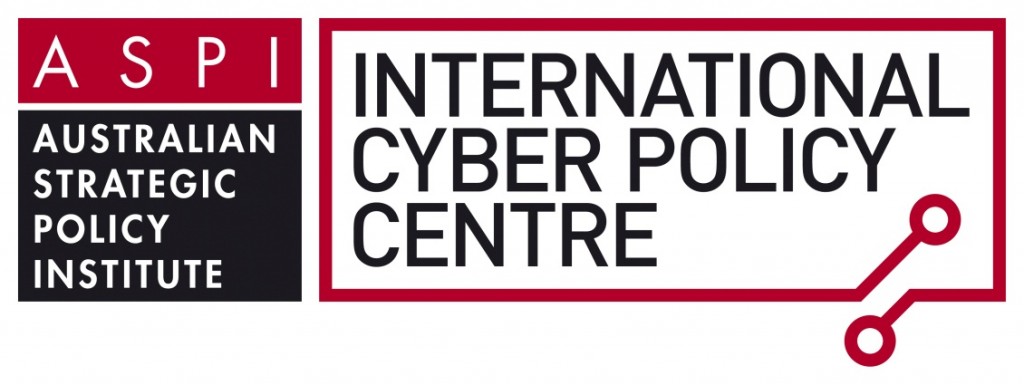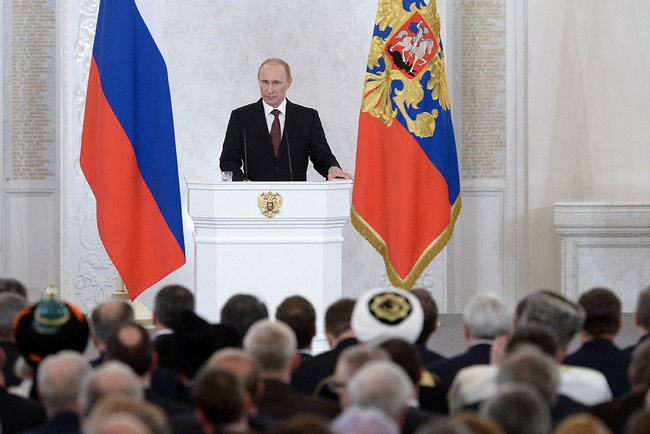A relaxed Russia

Russia’s likely to be pleased with the outcomes of the NATO meeting in Warsaw and will certainly not regard their strategic position as weakened. Russia will welcome signs of discord and posturing within both NATO and the European Union. The NATO emphasis on increased deterrence isn’t likely to restrict Russia from acting militarily in pursuit of its interests.
Despite strong statements condemning Russian intervention in the Ukraine, NATO support for Ukraine remains largely symbolic, and limited to diplomacy and some capacity building initiatives. In a telephone hook up with Putin at the start of the Warsaw summit, Merkel and Hollande stressed the need to intensify negotiations to implement the 2015 Minsk II agreements. Implementation would represent a setback for the Ukraine and—along with incorporation of Crimea—a substantive loss of sovereignty, as it would secure Russia’s significant strategic gains.
At Warsaw, NATO deferred any decision on a Black Sea fleet to challenge Russia’s dominant and growing naval presence in the Black Sea. Romania and Bulgaria reversed their original support following Russian warnings. Even the position of Turkey, originally an advocate, became unclear in the wake of its growing rapprochement with Russia. As Russia begins operating advanced frigates and submarines in the Black Sea, its capacity to exert its influence on the littoral nations will likely grow.
Failure to address control of the Black Sea may prove NATO’s biggest strategic shortcoming at Warsaw, given its intention to bring Georgia into the alliance. Russia’s foreign policy commits it to the security of Abkhazia and South Ossetia and it has expressed opposition to Georgia’s membership of NATO. Russia can be expected to resist NATO penetration into the Trans-Caucasus that connects it with Turkey and Iran and contains Chechnya, Armenia, and Azerbaijan. Russian domination of the Black Sea would be key to military action in support of Russia’s interests in the Trans-Caucasus. Russia’s growing rapprochement with Turkey will ensure its strategically important naval access to the Mediterranean through Turkey’s control of the Bosporus and Dardanelle straits.
NATO has a problem of capability in Europe. Russia would have noted that the announcement on military expenditure by European members of the alliance was muted and hopeful rather than optimistic. The NATO guideline for defence expenditure is 2% of GDP. Only Greece, the UK, Estonia and Poland currently meet that requirement, with 19 members falling below 1.5% of GDP—including France, Germany, Spain, Turkey and Canada. Russia must question the credibility of NATO’s capacity to meet and sustain the Warsaw commitment to enhanced collective defence and deterrence .
Europe isn’t anti-Russia. Gaining public support for increased investment in defence capabilities is going to be difficult, especially as rising nationalistic Eurosceptic parties challenge the traditional parties in Europe over the next 18 months. Finding support for maintaining sanctions on Russia also won’t be easy.
According to a recent Pew Research Center survey, the majority of European citizens see Daesh (76%) and climate change (66%) as the major potential threats to European security, followed by cyber attacks (54%), refugees (49%) and then tensions with Russia (34%). One of the most significant findings was the widespread disapproval of the EU’s policy on Russia, with many Europeans believing it more important to have a strong economic relationship with Russia than take tough foreign policy positions.
Politicians anxious about coming elections, and the economic consequences of Brexit, are increasingly opposed to sanctioning Russia. The French Senate overwhelmingly voted in favour of lifting sanctions on Russia despite government opposition. The Italian, Hungarian and Greek governments have spoken in favour of softening or lifting sanctions, arguing they’ve been ineffective and hurt Europe’s economy. Perhaps most significantly is Germany’s open questioning of the political and economic hardline towards Russia.
Russian observers couldn’t help but view the NATO Warsaw meeting in the context of the contemporary challenges to EU unity. NATO and the EU issued a joint declaration in Warsaw. That initially seems odd as membership of those organisations overlaps to a significant degree—it would be astounding if their views weren’t in accord. NATO has 28 member countries, 22 of which are members of the EU. Both organisations make decisions by consensus among representatives of the same national governments represented at the European Council of Ministers or the North Atlantic Council.
The joint declaration is aimed directly at connecting EU unity with European security, in the hope of shoring up support for the EU. It was purely a political exercise.
Russia would be justified in believing that NATO’s decision to rotate troops through Eastern Europe is largely tokenistic and that the appetite for confrontation isn’t strong among Western European countries. As European leaders currently face strong challenges from euro-sceptic nationalists emboldened by Brexit—and the real possibility of a NATO-sceptic Trump presidency looms—Russia won’t be uneasy post-Warsaw.



